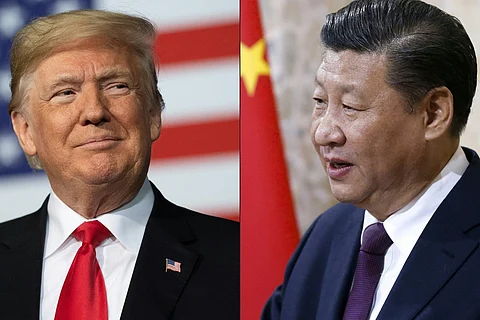

Chinese President Xi Jinping and US President Donald Trump spoke by telephone on Thursday, discussing Taiwan, trade ties, and extending invitations to visit each other’s capitals, in a move seen as a bid to de-escalate rising tensions.
According to China’s state news agency Xinhua, the call was held “at the latter’s request”. Trump later described the 90-minute conversation as “very positive” for both countries.
“President Xi graciously invited the First Lady and me to visit China, and I reciprocated,” Trump wrote on social media. “As presidents of two great nations, this is something we both look forward to doing.”
The call came against a backdrop of renewed friction between the world’s two largest economies, following mutual accusations of violating a recently struck trade agreement in Geneva. That deal had pledged a 90-day reduction in tariffs, with Trump touting it as a “total reset”.
It was the first direct communication between the two leaders since the latest round of tit-for-tat tariffs began in February. Both sides reportedly agreed to resume Chinese exports of rare earth minerals and reverse visa restrictions on Chinese students — measures that had been flashpoints in the deteriorating relationship.
The call has been interpreted as a high-level political endorsement of efforts to ease the long-running trade war, which has threatened to reshape global commerce.
Tensions had escalated again in recent weeks, with Washington accusing Beijing of dragging its feet on easing export restrictions for rare earth elements — critical inputs in both consumer and military technologies, and a sector where China holds strategic dominance.
Last week, Trump accused Beijing of having “totally violated” the Geneva accord. China responded by criticising the US for imposing “discriminatory restrictions”. That was a reference to new US guidelines advising global firms against using Huawei’s Ascend AI chips — issued just one day after the Geneva deal was finalised.
In a further blow to bilateral ties, Washington announced it would “aggressively” revoke visas for Chinese students — a policy likely to affect one of the largest foreign student groups in America.
Markets responded cautiously to news of the call, with US stock indices mixed as investors awaited more detail on its tone and outcomes.
Trump had hinted several times over recent weeks that he expected to speak with Xi. On Monday, the White House said a call was “likely” to take place, though Beijing offered no confirmation. A day before the eventual conversation, Trump publicly remarked that Xi was “extremely hard to make a deal with”.